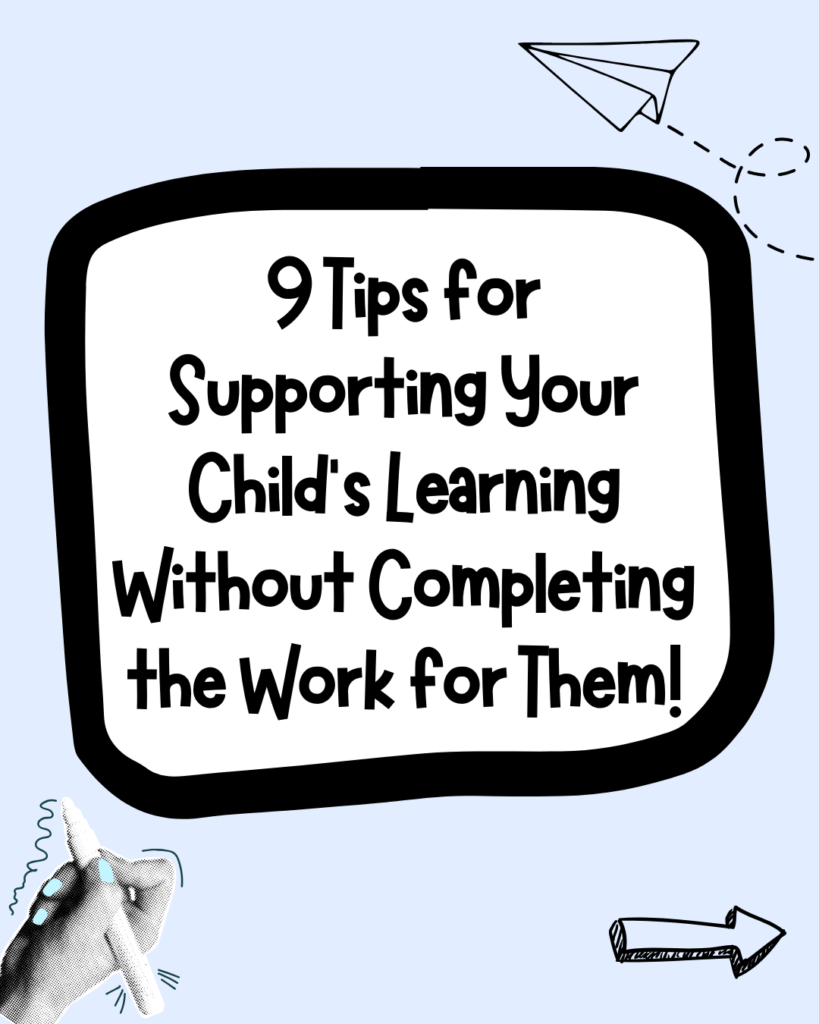Supporting Your Child’s Learning Without Completing the Work for Them

Parents play a pivotal role in their child’s educational journey. Striking the correct balance between providing support and fostering independence is essential. Excessive intervention may create dependence and diminish self-confidence while insufficient support may leave the child feeling discouraged or disengaged. The most effective approach is to guide children in ways that enable them to develop autonomy, resilience and the capacity to take responsibility for their own learning.
Nine Strategies for Supporting Without Doing
1. Establish an Appropriate Learning Environment
The physical and emotional setting of study has a significant influence on engagement and productivity. A quiet, organised space free from distractions signals the importance of learning and provides structure. Having necessary materials to hand ensures readiness and minimises interruptions.
2. Allow Time for Independent Thought
Children often require time to process information. Silence can feel uncomfortable but it is crucial for learning. Allowing pauses of 10–20 seconds after posing a question encourages reflection and nurtures problem-solving skills.
3. Encourage Metacognition Through Questioning
Rather than supplying answers, guide with questions such as What do you notice? or How could you check this?. The question why is particularly valuable in stimulating deeper reasoning and encouraging children to articulate their thought processes.
4. Identify and Highlight Key Information
Children may overlook essential details in a question or text. Underlining or highlighting key words develops the ability to locate relevant information and enhances comprehension. Parents should initially model this strategy before encouraging independent application.
5. Distinguish Between Independent and Supported Work
Marking work with ‘I‘ (independent) or ‘S’ (supported) provides clarity about the level of help received. This practice promotes accountability and allows both parent and child to monitor the gradual increase in independent work over time. Additionally, teacher will be able to see if students were supported with their homework.
6. Promote Learning Through Role Reversal
Asking a child to assume the role of teacher and explain the material consolidates knowledge. Explaining each step aloud requires deeper processing and reveals areas where understanding may remain incomplete.
7. Structure Learning into Manageable Segments
Breaking tasks into smaller goals reduces feelings of being overwhelmed. For instance, setting the task of reviewing photosynthesis for 20 minutes and answering five questions is more productive than the broad instruction to revise science.
8. Value Effort and Process Over Outcome
Praise should emphasise persistence and strategy rather than solely correct answers. Statements such as I like how you checked your working carefully promote a growth mindset, encouraging children to embrace challenges as part of the learning process.
9. Encourage Independence Through Withdrawal of Support
It is important to step back and allow children to attempt tasks independently, even if mistakes occur. Such experiences build resilience and foster a sense of ownership over learning. Normalising mistakes as opportunities for growth is essential. Parents must carefully judge when to provide guidance and when to allow independent effort. This balance cultivates confidence while still ensuring the child feels supported.
Recognising Signs of Avoidance
Even motivated learners may occasionally attempt to delay tasks. Parents can support effectively by recognising common stalling behaviours, which include:
- Repeated sharpening of pencils or reorganising the desk
- Frequent requests for unnecessary snacks or drinks
- Leaving the room often without clear purpose
- Prolonged staring at the page without writing
- Asking irrelevant questions to divert attention
When such signs arise, parents should respond calmly and redirect focus. Establishing short, time-bound goals, for example complete this one question in the next five minutes, helps reduce avoidance and restores momentum.
Conclusion
Parental support in learning is most effective when it cultivates independence, resilience and responsibility. By adopting strategies such as allowing time to think, guiding through questioning, encouraging role reversal and praising effort, parents empower children to develop ownership of their education. Recognising signs of avoidance ensures that guidance remains constructive rather than enabling procrastination. Not all parents are teachers. Be patient with yourself, focus on encouragement not perfection and remember your support already makes a difference.

